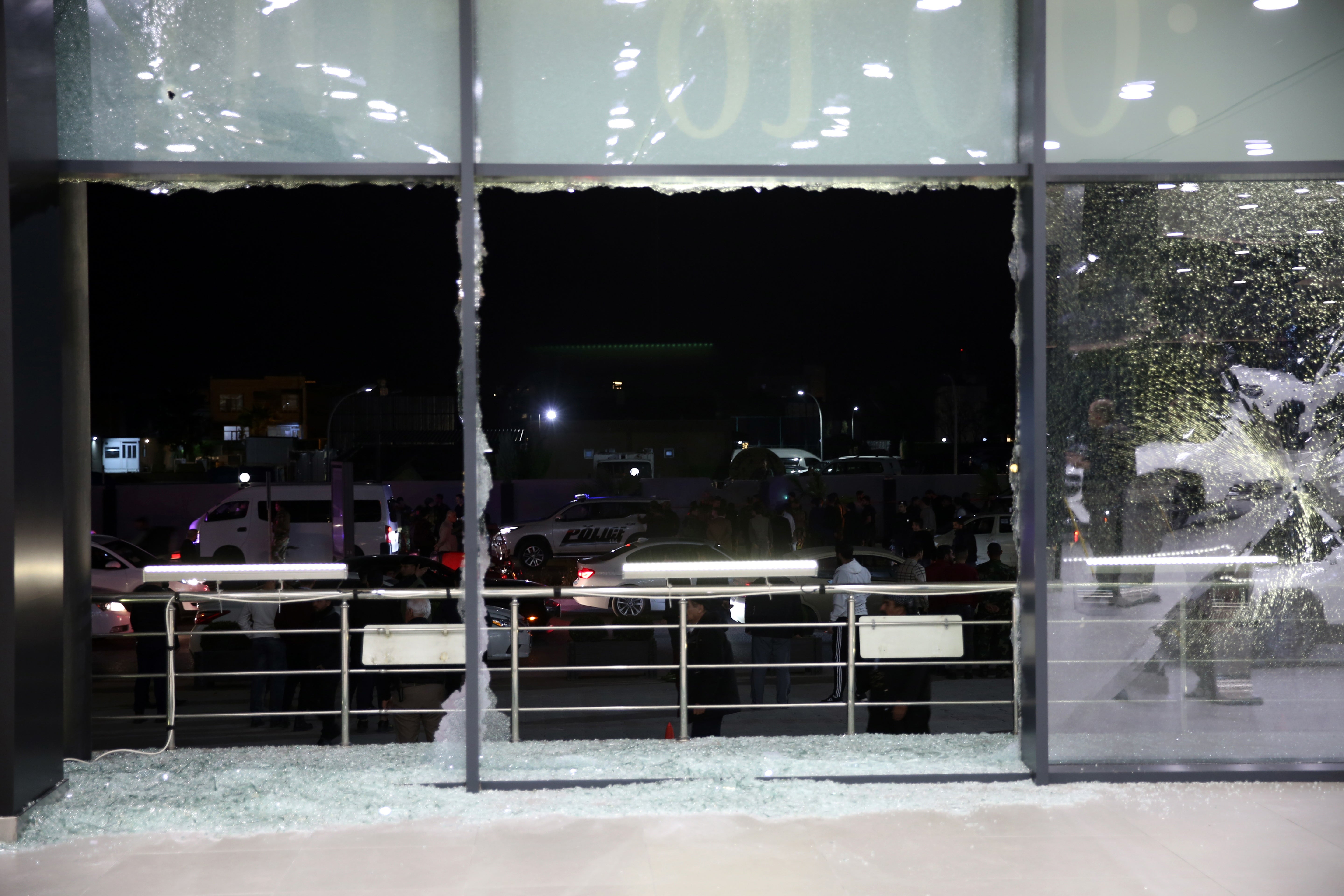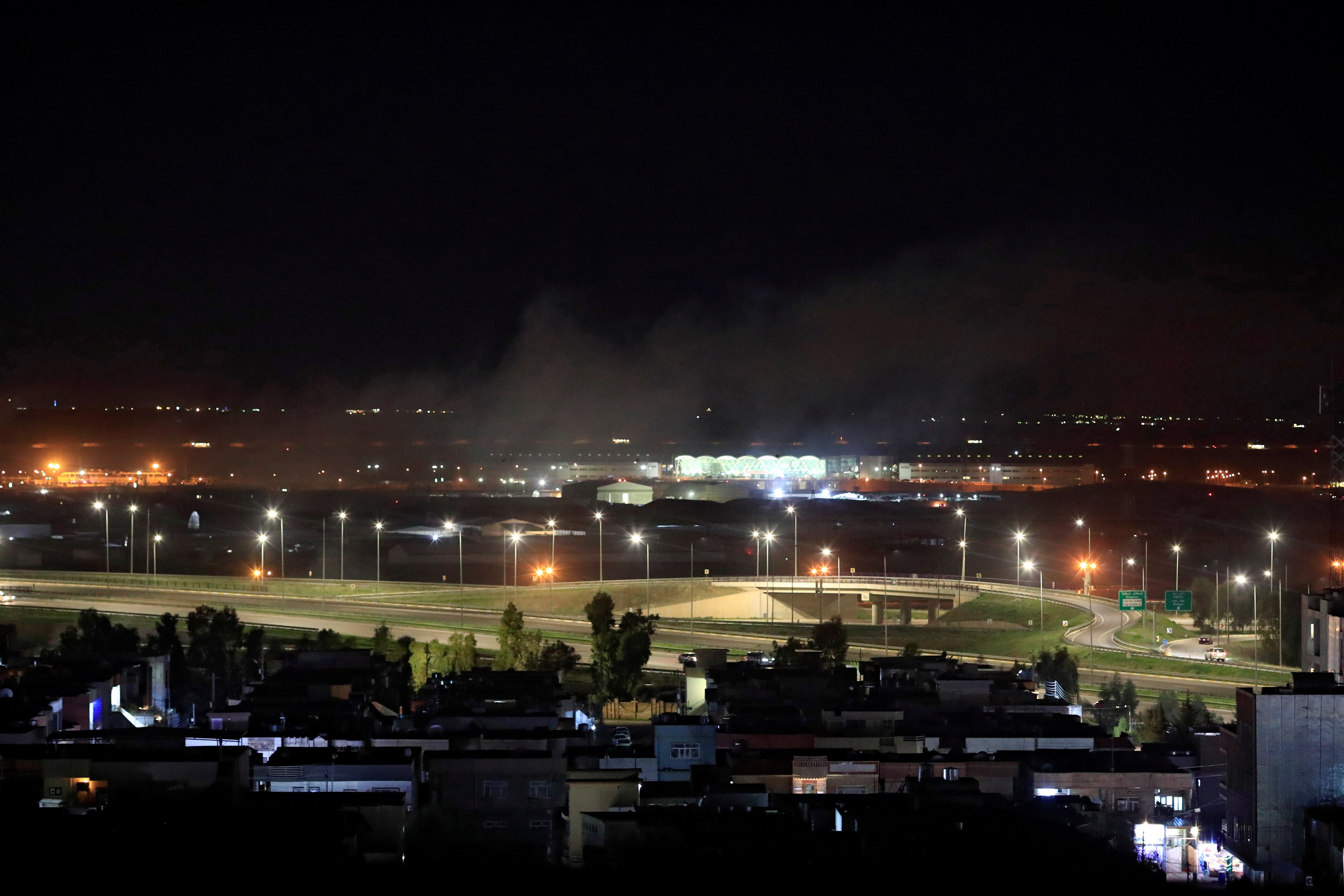Rocket attack on US air base in Iraq leaves one dead
The person killed was a civilian contractor, said officials

A rocket attack on US-led forces in Iraq has killed a civilian contractor and injured nine others, including a service member, officials said, in the deadliest such attack in a year.
Colonel Wayne Marotto, a spokesperson for the US-led coalition in Iraq, said approximately 14 rockets were launched towards Erbil airbase on Monday night with three of the 107mm projectiles striking the facility adjacent to Erbil’s civilian airport.
Col Marotto did not identify the nationality of the civilian contractor who was killed but said he was not from the US. He confirmed that nine people were injured and that five US citizens were treated for concussion.
A group calling itself Saraya Awliya al-Dam, meaning “Guardians of the Blood brigade”, claimed responsibility for the deadly barrage, saying it had fired 24 rockets towards the base, “leading to massive losses in the vehicles, stores and aircrafts of the [US] occupation and several injuries in the ranks of the occupying members”.
The little-known group, which some Iraqi officials identified as an “Iran-backed militia”, provided no evidence for the claim.
CCTV footage shared online apparently showed the moment when other rockets landed in civilian neighbourhoods in the city, blowing out windows and starting fires.
The US secretary of state, Antony Blinken, said America was “outraged” by the “ruthless” act of violence and sent his condolences to the family of the civilian contractor who was killed, as well as to the Iraqi people.
He said the US would support all efforts to investigate and hold the perpetrators accountable.
The Iraqi prime minister, Mustafa al-Kadhimi, has ordered an investigation into the incident, while the president, Barham Saleh, described it as a “dangerous escalation”.
The Kurdish region’s interior ministry said on Tuesday that they found the vehicle used to launch the attacks on a road outside the city.
Monday’s attack is the deadliest since a rocket attack on a base in northern Iraq in March last year killed one British and two American personnel.
But both are a rare targeting of US forces in the Kurdistan region, which has long been a relatively safe haven for Americans and US military personnel in Iraq.
“The Americans have withdrawn from Baghdad, and Erbil is their refuge,” said Andreas Krieg, a Gulf and Middle East specialist at King’s College. “If they attack northern Iraq, it’s a message that they’re wanted out of there too.”
The barrage only ratchets up conflict in the Middle East region at a time when Washington and Tehran are exploring a return to the 2015 nuclear deal that was scrapped by former president Donald Trump three years ago.

Over the last few years, tensions have soared between the US and Iran, reaching a crescendo in early 2020 when the US killed top Iranian commander Qassem Soleimani in an airstrike on Baghdad airport.
Since then, armed groups aligned with Iran in both Iraq and Yemen have scaled up their attacks against the US and its Arab allies. That escalation has continued over the last few weeks with a drone attack on a Saudi airport, and rockets against the US embassy in Baghdad.
On Tuesday, the Saudi-led coalition said that it intercepted and destroyed a drone laden with explosives fired towards Saudi’s Abha airport by the Iran-backed Houthi rebels in Yemen.
The incidents have ramped up pressure on US troops in the early days of Joe Biden’s presidency, as he mulls returning to the Iran deal.
Allies of the US, such as France, have said that any new negotiations should be strict and should include Saudi Arabia, Iran’s main regional foe. Iran insists it will only return to compliance with the 2015 deal if Washington lifts crippling sanctions.
Join our commenting forum
Join thought-provoking conversations, follow other Independent readers and see their replies
Comments
Bookmark popover
Removed from bookmarks